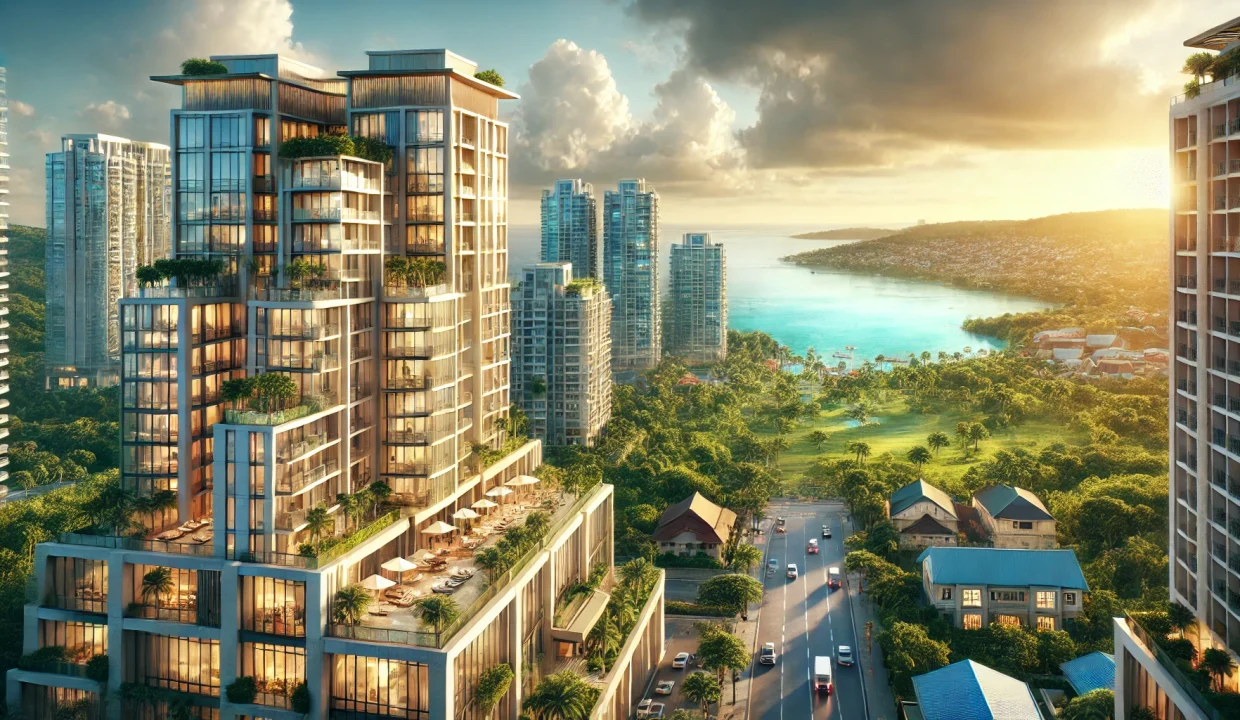Navigating Cebu’s Rental Market: Tips for Landlords and Renters in 2024
Cebu’s rental market is shifting in 2024—some would say it’s getting more interesting, but it’s not without headaches for landlords and renters. With demand going up, fresh property developments popping up, and certain locations getting a lot of attention, everyone’s got to keep an eye on market shifts and what works best. Setting a fair price, picking the right property or tenant, and knowing your way around rental agreements—these things really matter for both sides.
Landlords who keep tabs on local rates and add modern touches to their properties tend to attract more tenants and avoid long vacancies. Renters, meanwhile, should dig into rental agreements, double-check that costs fit their budget, and focus on comfort and safety. Mastering these basics goes a long way in Cebu’s busy rental scene.
Key Takeaways
- Cebu’s rental scene brings its own mix of perks and challenges for landlords and renters.
- Knowing market rates and having the right paperwork is a must.
- Some planning and a bit of smart decision-making can really smooth out the rental process.
Understanding Cebu’s Rental Landscape in 2024

Cebu’s real estate market is seeing changes—prices are moving, property types are shifting, and renters want different things. Location is still king, with some neighborhoods heating up and others just steady as ever.
Major Trends Shaping Cebu’s Rental Market
What’s driving Cebu’s rental market this year? Remote work is still a big influence, pushing more folks toward long-term leases instead of bouncing around. Urban hubs like Cebu City, Mandaue, and Lapu-Lapu City are favorites, thanks to jobs, schools, and shopping.
Rental rates in hot spots have climbed since last year. Condos in Cebu Business Park or IT Park? You’re looking at ₱25,000 to ₱60,000 per month. Head out to the suburbs or further, and you might find places starting at ₱10,000 per month.
More renters now want furnished units or at least some modern touches. Most people ask for one- or two-bedroom condos with at least one bathroom, parking or a garage, and floor space between 25 and 80 square meters.
In-Demand Property Types and Locations
Condominiums are still the go-to for young professionals and smaller families. They’re easier to manage, usually come with a pool or gym, and security’s a given.
Coastal and scenic spots—think Lapu-Lapu City and Talisay—draw in expats and tourists chasing beach access or mountain views. You’ll see “sea view,” “pool,” or “near IT Park” pop up in a lot of searches.
Single-family homes pull in bigger families, but you’ll mostly find them in quieter areas with at least 80 square meters of lot space. Two or more bedrooms and a garage? Those are in demand out there.
Factors Impacting Rental Supply and Demand
New developments keep adding options, so renters have more to pick from and landlords have to compete. Supply is highest around new condo projects, but well-kept, well-placed units are always snapped up fast.
The tourism comeback means more short-term renters, especially in vacation spots. But local workers and students are still driving steady demand for long-term rentals near business districts and schools.
Things like minimum price, amenities, and how easy it is to get around also affect how fast a place rents out. If a unit’s got good transport, new appliances, and solid security, it’ll fill up quickly—no matter the price bracket.
Key Considerations for Landlords in Cebu

Property owners really need to watch market prices, keep their units appealing, and manage tenants well. Getting these right means fewer empty months and more reliable income.
Setting Competitive Rental Rates
Rental prices in Cebu swing a lot depending on location, property type, and what’s included. In central spots like Cebu City or IT Park, a basic one-bedroom condo might go for PHP 18,000 to PHP 35,000 monthly. Out in the suburbs, it’s usually PHP 10,000 to PHP 22,000.
Landlords should check current listings that match their property’s size and location, so they don’t aim too high or too low. Online rental sites and chatting with local agents can offer some fresh perspective.
Setting a realistic min price and max price—and tweaking it for upgrades—helps attract good tenants. Sometimes a small upgrade or added feature can help a listing stand out.
Enhancing Property Value and Appeal
Renters here want places that are clean and updated. Even simple changes like adding air-conditioning or swapping out old lights can make a difference.
Landlords should keep the place in good shape and fix things quickly. Energy-saving appliances and secure parking are also big pluses, and can justify a bit higher rent.
Highlighting key features—close to business districts, nice views, whatever makes the place unique—makes your ad pop. Good photos and clear descriptions help renters see the value right away.
Working With Agents and Managing Tenants
Teaming up with a reliable real estate agent can make finding tenants a lot less stressful. Agents know the market, help set the right price, and screen applicants.
Checking tenant backgrounds and rental history is worth the effort. Having a clear rental agreement—covering rules, payments, and deposits—saves headaches later.
Landlords should keep communication open and professional. Fixing problems fast and respecting tenants’ privacy makes it more likely they’ll stick around for another lease.
Essential Tips for Renters in Cebu’s Dynamic Market

Finding a rental in Cebu isn’t just a matter of clicking through listings. Renters need to compare neighborhoods, read rental contracts closely, and watch for hidden fees before making a move.
Researching Neighborhoods and Properties
Picking the right location is key. Central areas like Cebu City, IT Park, and Mandaue have all the city perks, but prices are higher and units are usually smaller. Coastal or mountain spots—like Lapu-Lapu City or the barangays—might offer more space or better prices, but the commute can be a pain.
If you’re comparing options, a simple table helps:
| Property | Min Beds | Min Baths | Min Garages | Area (sqm) | Rent (PHP/month) |
|---|---|---|---|---|---|
| Condo A, IT Park | 1 | 1 | 0 | 35 | 30,000 |
| House, Talisay | 3 | 2 | 1 | 110 | 35,000 |
Also, look for buildings that fit your lifestyle—maybe you want a pool, a gym, or secure parking. It’s worth checking.
Evaluating Rental Agreements and Contracts
Before you sign a rental agreement, read the whole thing. Make sure the rent, included features, payment details, and rules (like pets or subleasing) are all spelled out. Check that the contract matches what was advertised—number of beds, baths, and area.
Look for the lease term too. Many landlords prefer a year or longer now. Double-check penalties for early move-out, how rent hikes are handled, and what’s expected when you leave. Always keep a signed copy.
Inspecting Units and Identifying Hidden Costs
Take a good look at the place before moving in. Test appliances, plumbing, locks, and lights. Make sure the min beds, min baths, and min garages match the contract. Measure the space and check for leaks, pests, or broken things.
Hidden costs can sneak up on you. Ask about association dues, parking, garbage, or utility deposits. Some buildings charge extra for pools or gyms. Get a full list of all fees—upfront and monthly—before paying anything.
Navigating Rental Agreements and Documentation

Clear rental agreements cut down on confusion for everyone. Good paperwork covers the basics—terms, payments, and who’s responsible for what. It’s not glamorous, but it matters.
Critical Lease Terms to Review
Any decent rental agreement should show the property ID, rental period, max price (monthly rent), and what amenities are included. Both landlord and tenant need to double-check the start and end dates, renewal options, and how much notice is needed to end the lease.
It’s best to spell out who pays for utilities, repairs, or maintenance right from the start. Make sure the rules about changes to the unit, pets, or subletting are clear. If something seems missing—like extra fees or house rules—ask to get it in writing before you sign.
Here’s a quick table to compare the important stuff:
| Lease Term | Example Details |
|---|---|
| Rental Price/Max | ₱25,000/month, set at lease start |
| Deposit Amount | 2 months’ rent |
| Property ID | Unique unit or house number |
| Allowed Residents | Max people staying in the property |
| Renewal Terms | Options to extend, notice needed |
Understanding Deposits and Payment Methods
Landlords almost always want a deposit to hold the unit. Most ask for one to two months’ rent as a security deposit, which covers damages or missed rent. The lease should say how and when the deposit will be returned—don’t just assume.
Payment options should be clear at the start. Bank transfers, post-dated checks, and cash are all common. The lease needs to mention when rent is due and what happens if you’re late. Always get a receipt, no matter how you pay.
If you pay by bank transfer, save a screenshot or the transaction slip. For cash, insist on a signed receipt from the landlord. It’s just safer that way and helps you keep track of everything.
Rights and Responsibilities for Both Parties
Landlords and renters both have legal duties. Landlords need to keep the place safe and healthy, fix things promptly, and respect your privacy by giving notice before dropping by.
Renters should use the property responsibly and report repairs when needed. Keeping the place clean and following the house rules is on you, too.
Both sides should hold onto a signed lease, property ID, and all receipts. Good communication can sort out most problems and keeps things professional.
Budgeting and Cost Management Strategies

Managing rental expenses in Cebu means knowing the real cost, keeping an eye on utilities and association dues, and being ready for surprise costs. These steps help everyone avoid headaches and keep budgets under control.
Calculating Total Rental Expenses
The total cost of renting is more than just the monthly rent. Don’t forget deposits, advance payments, and any agency or processing fees.
Usually, you’ll pay a security deposit (one or two months’ rent) and a month’s advance. In Cebu City, a basic studio condo in 2024 can start around ₱15,000/month, while bigger or fancier places can go over ₱60,000.
Here’s a snapshot of the usual costs:
| Item | Typical Cost | Notes |
|---|---|---|
| Monthly Rent | ₱15,000–₱60,000+ | Varies by size/location |
| Security Deposit | 1–2 months rent | Refundable |
| Advance Payment | 1 month rent | Usually non-refundable |
| Processing Fee | ₱1,000–₱5,000 | For agencies, if any |
Planning for Utility and Association Fees
Most renters pay monthly for utilities like electricity, water, and internet. Costs depend on how much you use and the property type.
Condos and subdivisions in Cebu often charge association dues for things like building upkeep, security, and shared amenities. These fees in central areas can run from ₱60 to ₱100 per sqm each month. For a 30 sqm unit, that’s ₱1,800 to ₱3,000 monthly.
Landlords should say what’s included in the rent. Renters should always ask if association dues or utilities are part of the monthly bill. It’s easy to get caught off guard if you don’t check.
Dealing With Unexpected or Additional Costs
Extra costs pop up, even if they’re not in the lease. Some common ones:
- Fixing broken appliances or fixtures
- Pest control
- Penalties for late rent or lost keys
Setting aside a bit for emergencies is smart. Renters can ask about how fast repairs get done and what’s covered. Landlords should make clear which repairs are their job and which are the tenant’s—it’ll save arguments later.
Read the contract carefully so everyone knows who pays for what. It keeps things running smoother and avoids nasty surprises.
Opportunities and Challenges in Cebu’s Rental Future

Cebu’s rental scene is always shifting—think changing rental tactics, evolving tenant tastes, and new rules popping up. Both landlords and renters need to keep up if they want to make smart choices and stay ahead.
Short-Term vs. Long-Term Rental Strategies
Short-term rentals are hot in tourist spots like Lapu-Lapu City and Mactan Island. Travelers love the convenience and furnished units, though the vacancy risk is higher. Nightly rates are better, but you might have empty weeks.
Long-term rentals in city centers like IT Park or downtown Cebu offer steady income. Digital nomads and remote workers want security and longer contracts. Landlords should weigh what works best for their location and what’s in demand right now.
Comparison Table: Short-Term vs. Long-Term Rentals
| Feature | Short-Term | Long-Term |
|---|---|---|
| Vacancy Risk | Higher | Lower |
| Income Stability | Less predictable | More predictable |
| Demand Period | Peak during holidays | Year-round |
| Tenant Turnover | Frequent | Less frequent |
Meeting Evolving Tenant Preferences
Tenant expectations in Cebu are changing fast. A lot of renters want fast internet, secure entry, and up-to-date appliances. Condos with gyms, pools, and parking are big draws—these perks really matter now.
Agents say units with upgrades like energy-saving lights or smart gadgets get rented out quicker and for better prices. Where the place is located matters too: close to business centers, schools, or malls? That’s where the action is. Landlords should team up with agents who know what tenants are looking for if they want to stay in the game.
Adapting to Regulatory and Market Changes
Rules and regs can change how everyone operates. Local governments sometimes roll out new requirements for permits, short-term leasing, or property taxes. Missing out on these updates can mean legal headaches or delays.
The rental market also shifts with tourism and foreign investment. More (or fewer) visitors can push rents up or down, especially in places like Mandaue or beach areas. Agents who keep tabs on new laws and economic trends can help landlords and tenants adjust quickly.
Frequently Asked Questions

Landlords and renters in Cebu are paying more attention to flexible lease terms, property upgrades, realistic budgeting, and thorough tenant screening. Trends like remote work and new coastal communities are also shaping the market.
What strategies can landlords employ to remain competitive in Cebu’s 2024 rental market?
Landlords are updating units with must-haves like fast internet, secure entry, and energy-saving appliances. They check local rental rates often, offer flexible leases or perks, and handle maintenance issues quickly to keep tenants happy (and attract new ones).
How can renters determine the best housing options within their budget in Cebu?
Renters can browse online listings or talk to local agents to compare prices. Make a list of must-have amenities and focus on areas with decent transport, safety, and access to work or schools. Don’t forget to visit a few places and double-check for hidden costs like association dues or utilities.
Which rental property features are in high demand in Cebu’s market as of 2024?
People are looking for stable Wi-Fi, modern kitchens, air conditioning, parking, and on-site security. Places with gyms, pools, or outdoor spaces are also popular. Fully furnished units are a big plus, especially for short-term renters or those moving from far away.
What emerging neighborhoods in Cebu offer valuable opportunities for renters and landlords?
Mactan, Banilad, and South Road Properties (SRP) are seeing lots of new projects. Coastal areas near beaches and business centers are bringing in both locals and expats. These spots have modern amenities and are turning into investment hotspots as demand rises.
How has the rise of remote work influenced rental trends in Cebu?
Remote work has definitely changed what people want in a rental. More folks are searching for homes with extra space or a spot they can turn into an office. Instead of staying right in the middle of the city, renters are eyeing quieter neighborhoods—maybe somewhere with a bit of greenery. Landlords who are open to flexible lease terms seem to be winning over these remote workers, too.
What are the key considerations for effectively screening tenants in Cebu’s rental market?
If you’re a landlord in Cebu, you’ll want to check a renter’s ID, job status, and proof of income—just to be sure they can actually pay. It’s smart to call up their previous landlords and maybe do a quick background check; you really don’t want surprises like unpaid rent or trashed property. And honestly, having a clear agreement about who handles what, and when rent’s due, saves a lot of headaches later on.




